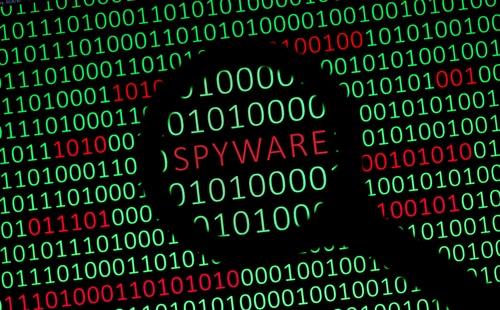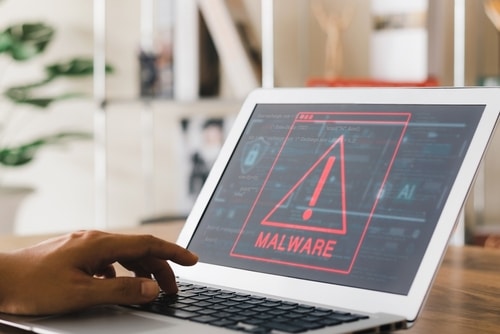Malware is a constant threat to businesses large and small.
According to NCC Group, a digital threat response company, ransomware attacks rose 92% in 2021 as compared to 2020 numbers. Cybercriminals targeted North America in more than half (53%) of all such attacks.
And that’s just one piece of the puzzle. Malware can take many forms.
That term refers to all types of software that disrupt, impede, or interfere with a computer system.
Recognizing the most dangerous computer malware can help improve network security, keeping your company safe from these threats. Let’s review a few of the most dangerous types of malware.
The 2 Most Dangerous Forms of Malware in 2022
Malware is constantly changing and improving. The same is true of cybersecurity platforms, computer operating systems, and many other digital tools.
That dynamic landscape makes it difficult to identify the specific computer virus, Trojan horse, or other malware that is most dangerous.
Common types of malware include:
- Computer viruses, which include some of the more specific items listed below
- Ransomware, explained below
- Spyware, explained below
- RAM scrapers, which steal data stored in RAM
- Adware, which shows adds and slows performance, but is not particularly dangerous
- Keyloggers, which track keystrokes to steal sensitive data such as passwords
- Trojan horses, which refers to any type of malware disguised as a legitimate file or application
- Computer worms, designed to spread and replicate although not necessarily cause direct damage
On a practical level, the most dangerous malware is whatever can do the most damage to a victim’s computer. The items listed below can be especially difficult for businesses to deal with.
Ransomware
Ransomware almost always involves a financial motive. This type of malware attack will hold personal information, or sensitive business information, hostage until a ransom is paid.
In these cases, hackers don’t try to steal your bank account login or other sensitive data directly. Instead, they use valuable info as a bargaining chip. The process of locking away information can be easier than gaining full access to it. That’s another reason this type of malware is on the rise.
This security threat is on the rise, according to Verizon. The company’s “2022 Data Breach Investigation Report” found ransomware attacks increased by 13% in 2021.
How to Avoid Ransomware
Ransomware can arrive in your system through a Trojan horse, as part of a phishing scam, or other means.
Installing antivirus software can reduce exposure to malware, including ransomware. The same is true of ensuring your operating system and individual programs are all regularly updated.
Most other strategies involve awareness and training. Double-checking the authenticity of a website offering a download or email attachments before opening them can go a long way.
If nothing else, take a cautious attitude toward any new or unknown prompt or instruction.

Spyware
Spyware attempts to collect valuable data without your knowledge. It could lead to a hacker gaining access to your login credentials. That could involve key internal systems or the password to your business’s bank accounts, for example.
Slowdowns in computer performance and unexplained actions can both be signs of spyware. Unlike ransomware, it’s more valuable for cybercriminals to keep the existence of spyware hidden from victims.
Spyware likely won’t offer a direct warning or notification, as is generally the case with ransomware.
How to Avoid Spyware
Security and antivirus software are valuable defenses against spyware. Implementing all software and OS updates as soon as they’re recommended can also help.
Beyond that, many tactics to stop spyware rely on good habits and keeping a clear view of a situation:
- Avoid the impulse to download unverified files and applications
- Recognize the signs of phishing emails and social engineering
- Don’t immediately click anything that doesn’t come from a trusted source
Network Security Services That Protect Your Business
There are effective ways to prevent malware, including both technological solutions and changes in employee behavior. Bringing in expert assistance can strengthen your efforts and support more complete protection of your digital assets.
PGH Networks can help you:
- Secure your data
- Monitor your network on a 24/7/365 basis
- Reduce the chances of a cybersecurity incident occurring
- Support faster and more effective recovery efforts, should a worst-case scenario arise
Our layered approach to network security takes everything into account. That includes not only software and hardware but user training and education to reinforce safe habits as well.
Protect yourself or your business from the most dangerous malware! Get in touch with the IT experts at PGH Networks today.

